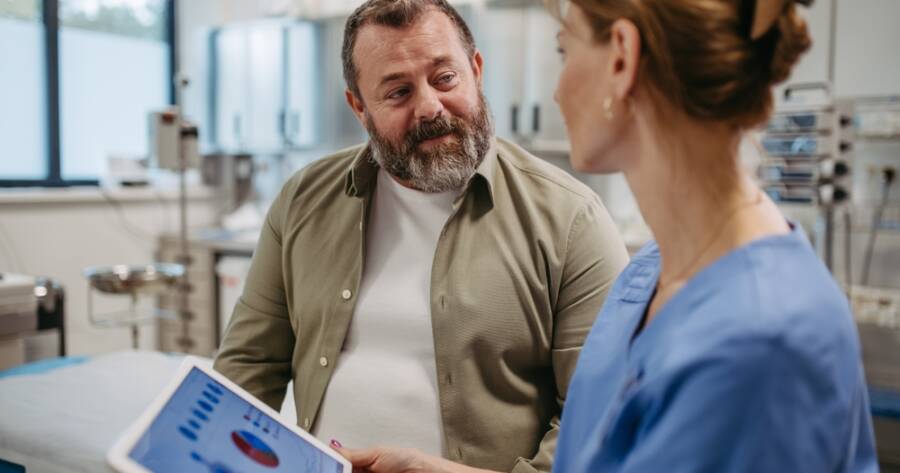Clinical trials play a critical role in advancing medical science, offering insights into the effectiveness and safety of fat removal surgeries. These trials enable researchers to explore innovative techniques and refine existing procedures. For individuals considering fat removal surgery, participation in clinical trials might provide access to cutting-edge treatments and detailed monitoring. However, understanding the nature and scope of these trials is essential. This article will explore what clinical trials involve and how they contribute to the future of fat removal surgery.
Understanding Clinical Trials
Clinical trials are research studies designed to evaluate medical, surgical, or behavioral interventions. They are the primary means through which researchers determine the safety and efficacy of new treatments or medical devices. In the context of fat removal surgeries, clinical trials may explore new techniques, anesthesia types, patient recovery processes, and long-term outcomes. These trials are typically conducted in phases, each with specific objectives and participant numbers, from small-scale preliminary studies to extensive trials involving large populations.
Participants in these trials are carefully selected based on criteria that match the study’s focus, which may include factors like age, weight, health status, and previous procedures. Recruitment often seeks individuals willing to engage in research-driven healthcare under close supervision. Those interested in participating should prepare to receive experimental treatments and adhere to follow-up protocols designed for thorough evaluation.
The Importance of Clinical Trials in Fat Removal
The role of clinical trials in fat removal surgeries cannot be overstated. They provide valuable data supporting new surgical methods or technologies, aiming to enhance safety and efficiency. Participants contribute to a growing body of knowledge that informs better techniques, potentially minimizing risks and improving results for future patients. This continuous cycle of research and development drives innovation, advancing the field for more effective solutions.
Moreover, clinical trials assess long-term effects and patient satisfaction, offering insights into outcomes that standard studies might overlook. Tracked over time, these findings help refine procedural elements such as anesthesia, post-op care, and recovery strategies. By participating in clinical trials, individuals contribute to refining treatments, benefiting both themselves and the broader community by paving the way for future surgical success.
Potential Benefits for Participants
Participating in a clinical trial offers several potential benefits to fat removal candidates. Often, clinical trials provide access to advanced and potentially more effective treatments than standard care options. These early-stage interventions usually come with comprehensive health assessments and close monitoring throughout participation, ensuring that patient safety is prioritized.
Additionally, participants gain insights into their health beyond cosmetic concerns, considering overall well-being in the context of the study. Care provided as part of a clinical trial often involves a collaborative approach with skilled professionals across various healthcare specialties. The involvement in a clinical trial might lead to cost savings, as expenses for procedures and related health care are frequently covered by the study sponsors.
Weighing the Risks
While there are numerous advantages to participating in clinical trials, potential risks and downsides should be considered carefully. As with any medical procedure, the risks involved in new or experimental surgery techniques might not be fully understood. Candidates may experience side effects or complications requiring additional interventions or prolonged recovery periods.
Compliance with trial protocols and commitments to follow-up assessments might be more demanding than standard treatments. Participation typically involves a detailed informed consent process, explaining possible risks, benefits, and participant responsibilities. Understanding these details ensures potential candidates are well-informed about what may lie ahead, enabling them to evaluate whether participation aligns with their personal goals and risk tolerance.
Eligibility and Enrollment
Eligibility for clinical trials often reflects the specific goals of the study, seeking participants who meet defined criteria that ensure reliable results. Typically, trials will require an assessment of health status, body mass index (BMI), age, and sometimes relevant medical history or previous surgery impacts. Once eligibility is determined, enrollment involves comprehensive informed consent, highlighting the scope of the trial, targeted outcomes, and participant obligations.
Prospective participants should engage in conversations with their healthcare providers before enrolling, ensuring compatibility with their broader health plans. This approach ensures alignment with personal health objectives and prepares involved patients for the journey ahead. Active exploration of open and upcoming trials through reputable sources ensures potential candidates identify opportunities that match their desires and eligibility.
The Role of Innovation in Clinical Trials
Clinical trials stand at the forefront of innovation, with new techniques emerging regularly to optimize fat removal surgery outcomes. Pioneering research may introduce novel technologies like ultrasound-assisted lipolysis or laser treatments aimed at enhancing precision and reducing invasiveness. These innovations, often first tested in trials, embody the relentless pursuit of improved efficiency and patient satisfaction that clinical research facilitates.
Participation and engagement in these trials contribute to a more comprehensive understanding of procedural nuances, gradually informing best practices. By facilitating real-world application data and iteratively refining techniques, clinical trials remain a cornerstone of progressive medical advancements, offering an optimistic view of future surgical capabilities.
A Pathway to Better Solutions
Clinical trials are a critical component of developing and refining fat removal surgical procedures. These studies provide a platform for innovation, ensuring that advances in technology and techniques are rigorously tested before reaching widespread use. For participants, they offer a chance to contribute to science while potentially benefiting from cutting-edge treatments. However, it’s important to carefully weigh the risks and eligibility requirements before proceeding.
Engaging in meaningful conversations with healthcare providers and conducting thorough research can guide informed decisions. Clinical trials exemplify the collaborative effort between patients and researchers, paving the way for safer, more effective fat removal solutions. Through participation and support, the advancement of medical interventions thrives, promising a brighter and more informed future for all seeking surgical improvements.




